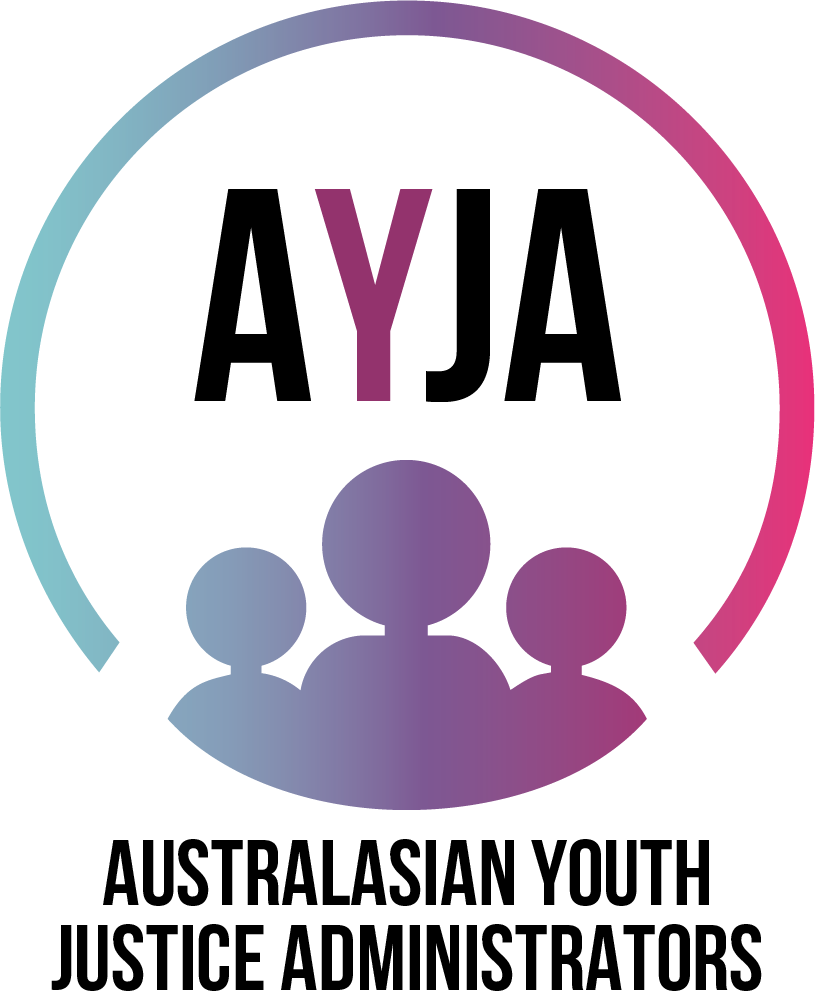AYJC 2016 – “From Evidence to Practice”

AYJA partnered with the Griffith Criminology Institute (GCI) to deliver the 2nd Australasian Youth Justice Conference: From Evidence to Practice.
AYJA and GCI established an Event Management Committee and a Conference Program Committee to progress all conference tasks. Each Committee had a balance of both AYJA and GCI membership and meetings were co-chaired by the AYJA Chair and the Director of GCI Professor Ross Coomber. AYJA members from the Northern Territory, Queensland, Western Australia, Victoria and Tasmania participated in both Committees and were fundamental in the decision-making, development and implementation of the Conference.
The AYJA Secretariat provided secretariat services for both Committees and was responsible for joint project management alongside GCI and the Queensland Department of Justice and Attorney-General.
The Essence of the Conference
The theme of the Conference was appropriately entitled “From Evidence to Practice”. AYJA is firmly committed to supporting an evidence-based approach when working with children and young people.
Each year AYJA commissions research to help build the national evidence base for youth justice policy and best practice models. AYJA works collaboratively with AIHW, the Productivity Commission and other research bodies in the development and progression of this work.
One of AYJA’s stalwart achievements to better ensure best practice and national consistency has been the establishment of the Principles of Youth Justice in Australia. AYJA encourages and promotes all youth justice practitioners to use the Principles in the development, implementation and assessment across youth justice policy, program and service delivery.
The Principles underpinned the ethos of the Conference and the conference program was carefully curated to ensure the Principles were strongly reflected in every session stream.
The overrepresentation of Aboriginal and Torres Strait Islander children and young people was also a critical focus of the Conference, and responsive and holistic approaches to address overrepresentation issues were threaded throughout the program.
AYJC 2016
The Conference was held in the South Bank area of Brisbane at the Brisbane Convention and Exihibition Centre from 13-15 September 2016. The Conference was a three day event with a good mix of presentations, keynote addresses, Q and A, workshops, panel discussions and networking opportunities. There was local and national media coverage for the duration of the Conference.
Attendance was close to 250 with participants from across Australia, and New Zealand.
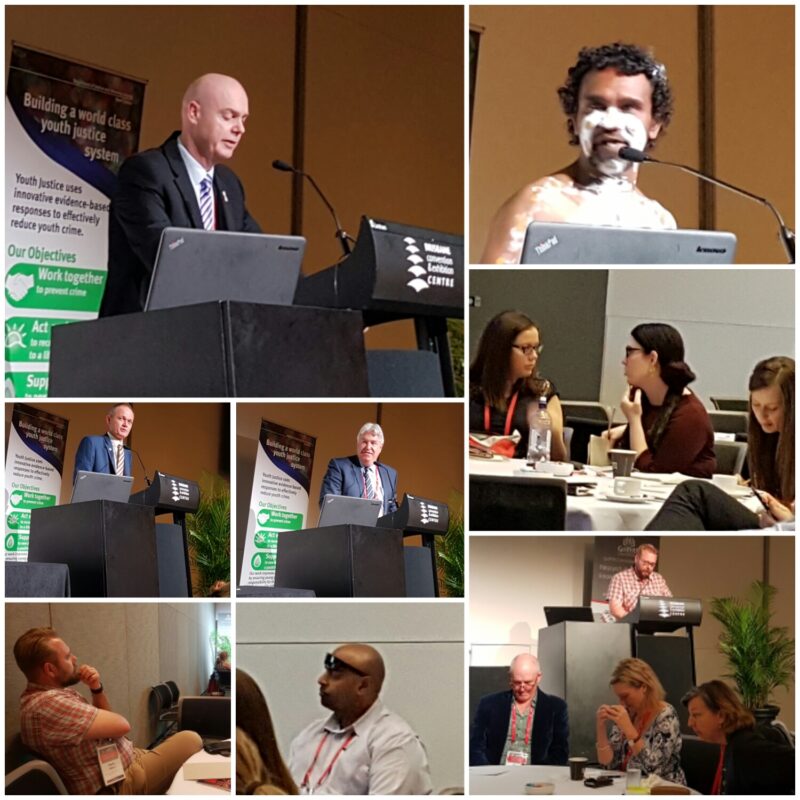
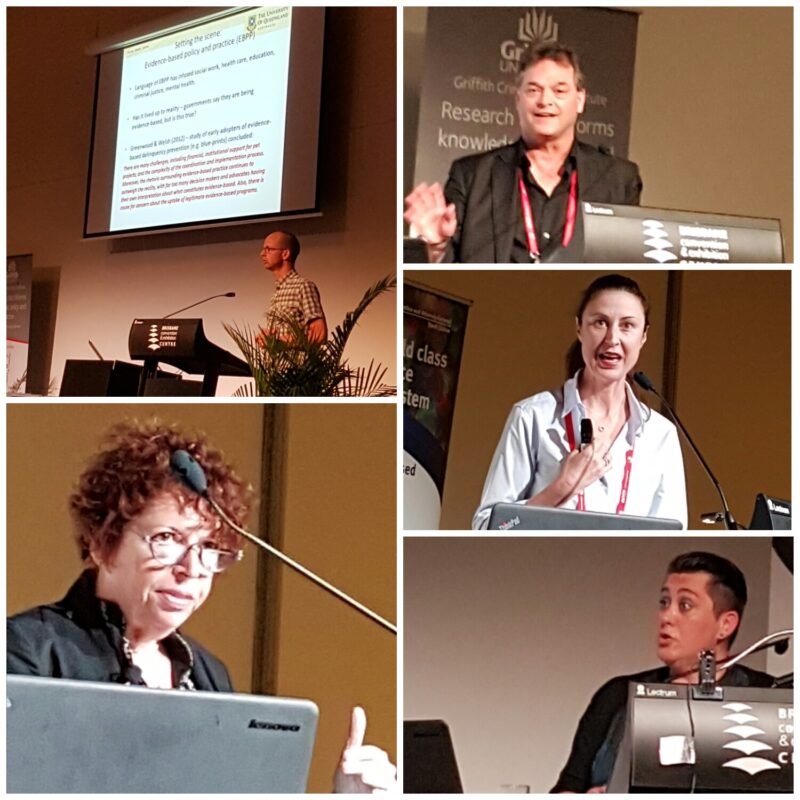
The line-up of keynote speakers included Professor Linda Teplin (US), Professor Colleen Hayward (WA), Associate Professor Rosemary Purcell (VIC), Ms Kylee Quince (NZ), Associate Professor Adrian Cherney (QLD) and Professor Rob White (TAS). Each keynote session attracted a full house and was followed by engaging Q and A.
Ms Khylee Quince was a crowd favourite with her charismatic and powerful presentation – “Rangatahi Courts as Social Justice: Beyond Restorative and Towards Transformative Justice”. Another crowd favourite was Associate Professor Adrian Cherney who did a very relevant and honest policy presentation highlighting “What Hinders Moving from Evidence to Practice”.
The program also included 44 presentations/workshops, three discussion panels and nine poster presentations. Speaker presentations/workshops were delivered by a diverse range of academics, researchers, practitioners, advocates, and government and non-government representatives.
The three panels comprised of an Indigenous Practitioners Panel, an Education Panel and a NGO Panel. Each Panel had membership from various jurisdictions to ensure that a broad range of perspectives, experiences, partnerships and provision of service would be covered. Like the keynote sessions the discussion panels attracted a majority audience and were informative and interactive.
Unfortunately, the speaker slides have now been taken down from the Griffith site and are no longer accessible.
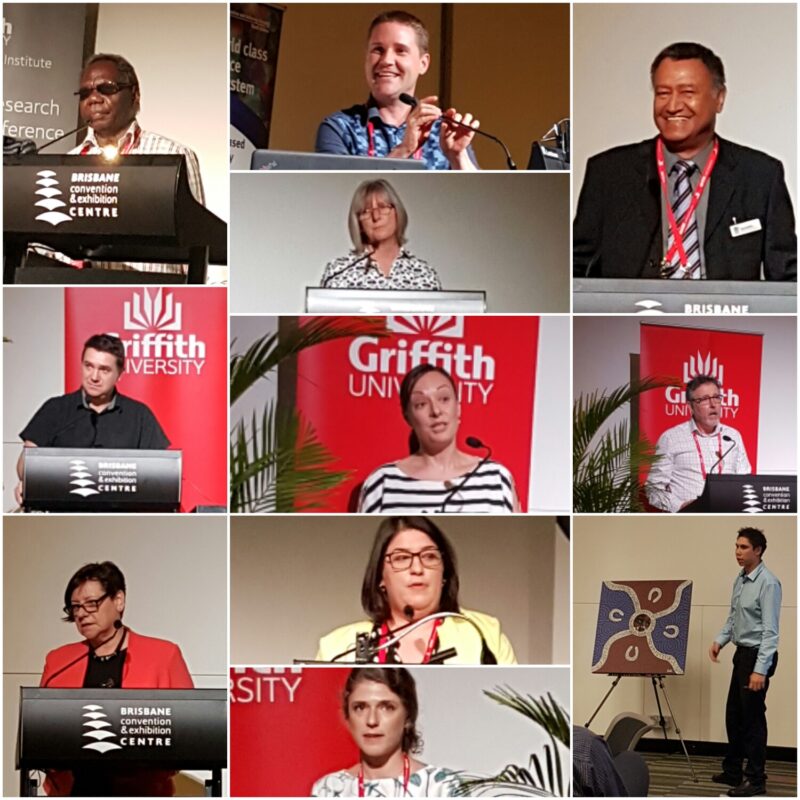
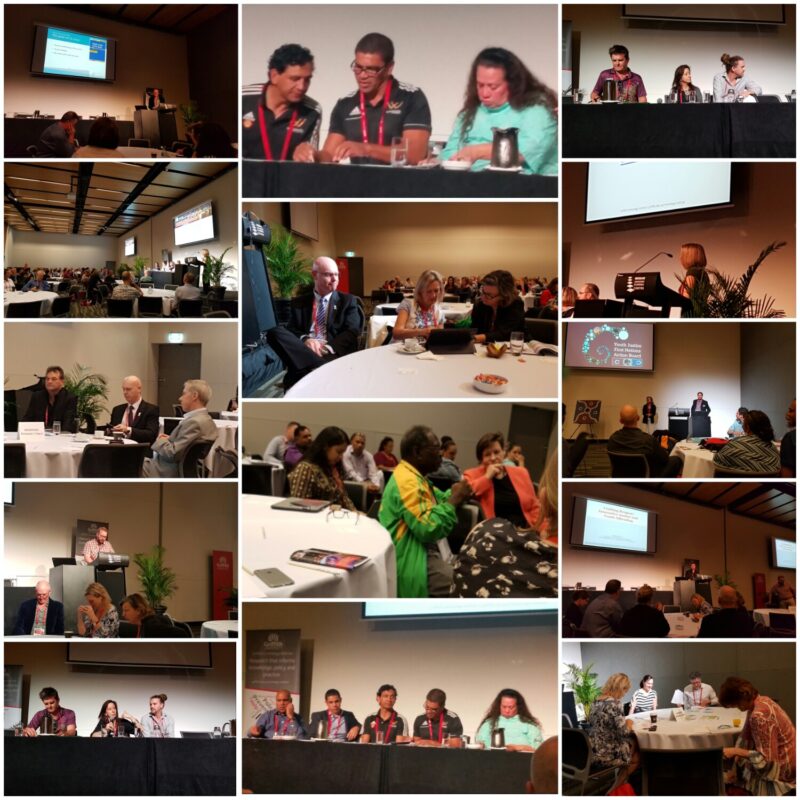
Queensland Department of Justice and Attorney-General
An opportunity available to the jurisdiction that hosts the Conference is setting up a display room to showcase local youth justice initiatives and innovations. The Queensland Department of Justice and Attorney-General (DJAG) showcased a range of new interactive technologies being piloted in Queensland youth justice; a mini gallery of artworks created by young people in detention; and a poster presentation for the Youth Justice First Nations Action Board. The DJAG display room was very successful and one of the most popular features of the Conference.
The First Nations Action Board (the Board) was a stand-out presentation delivered by several up-and-coming Indigenous leaders in DJAG who also provide regional representation on the Board. The Board is directed by esteemed senior youth justice practitioner and Indigenous Elder Uncle Arnold Wallis. The purpose of the Board is to ensure that Aboriginal and Torres Strait Islander consideration is forefront in all youth justice strategy, policy, and practice developed within DJAG. The Board ultimately provides an Indigenous voice and lens for youth justice in Queensland.
It is an inspirational and aspirational initiative intended to reduce the overrepresentation of Aboriginal and Torres Strait Islander young people in the Queensland youth justice system.
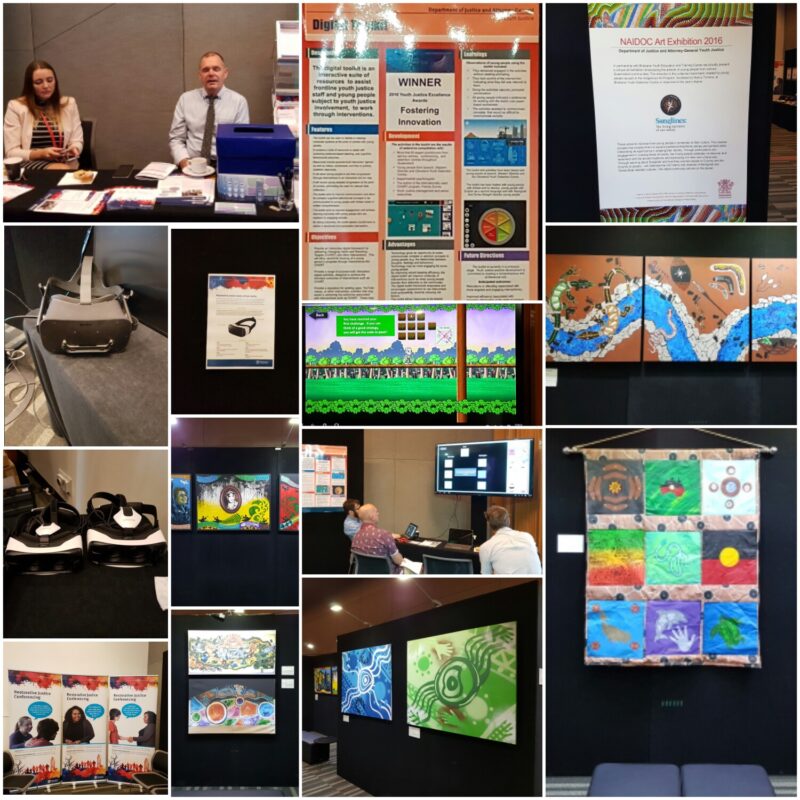
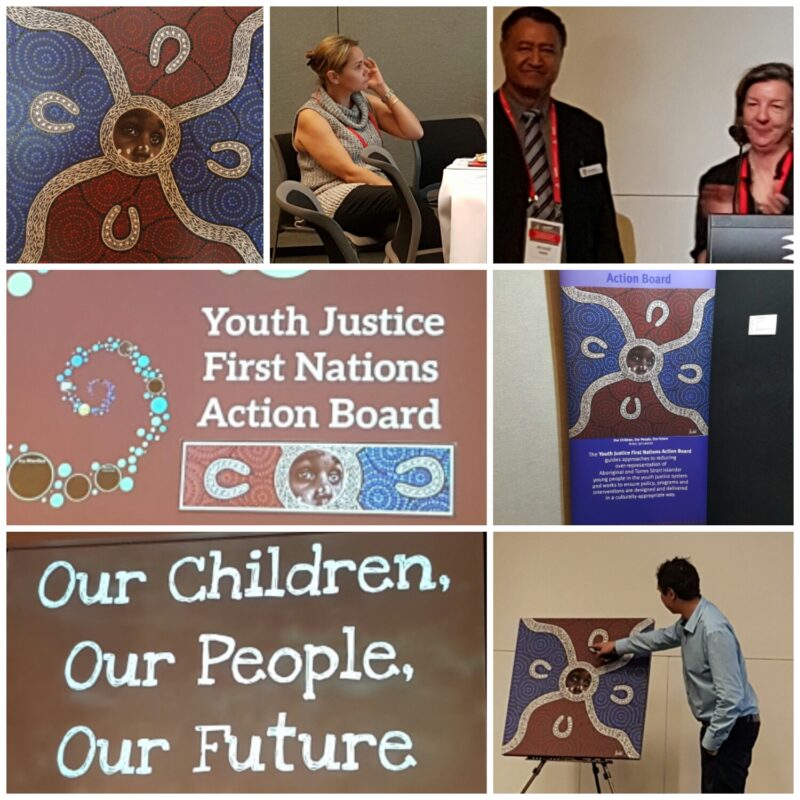
AYJA members actively engaged in all sessions over the three days and had many conversations with researchers, policy makers and practitioners from government and non-government sectors. AYJA members were enthused by these discussions and had a chance to consider how to use new learnings and ideas at the AYJA face-to-face meeting that followed the Conference.
Vsit the GCI website for more information www.griffith.edu.au/criminology-institute
